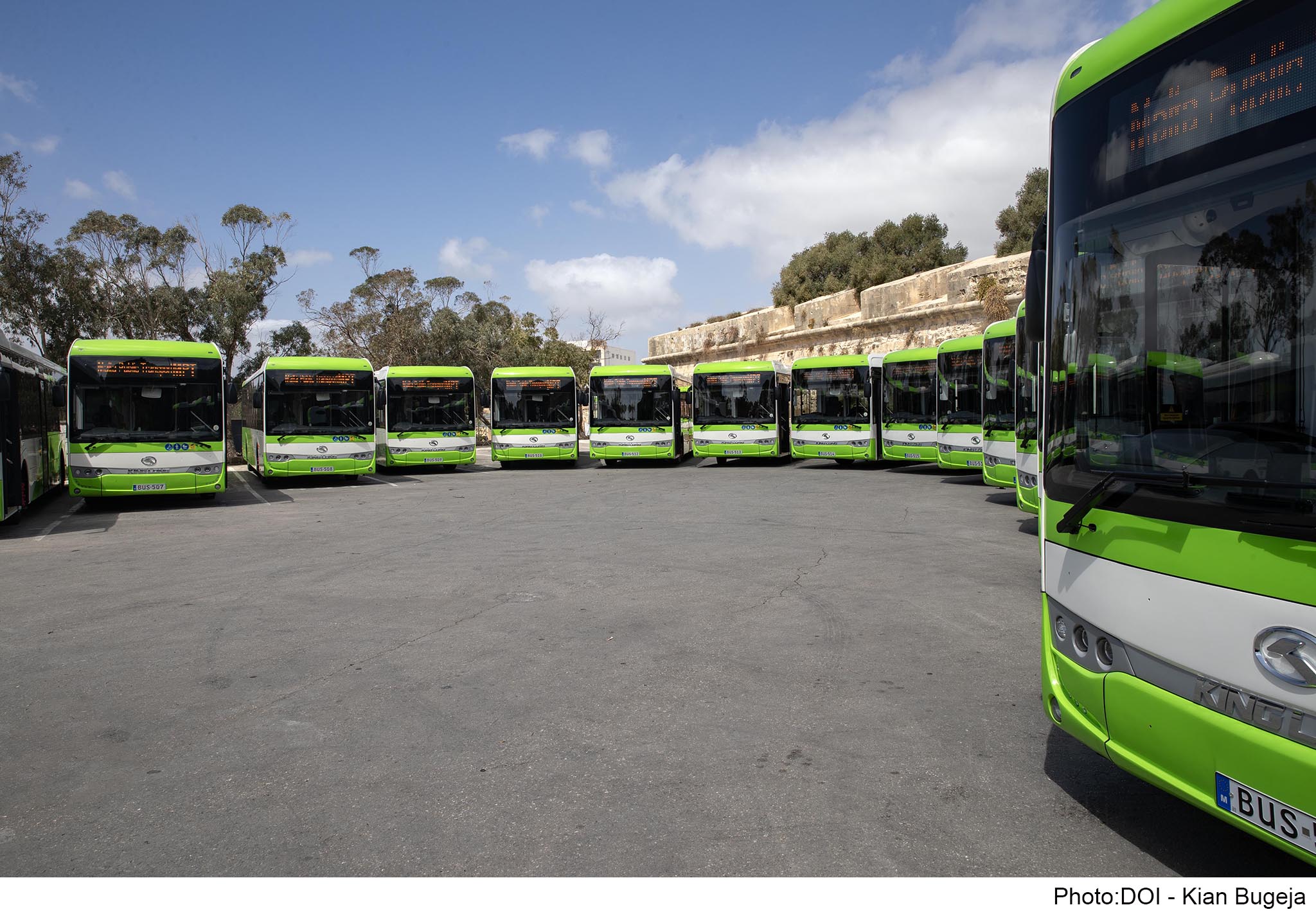On Tuesday, Malta’s Government, under Finance and Employment Minister Clyde Caruana, launched a new national employment strategy aimed at addressing the challenges currently being faced to Malta’s workforce head-on, as well as tackling projected future challenges.
The policy, which covers 2021-2030 in the form of a 300+ page document, is guided by four main overarching principles:
- Supporting individuals in acquiring the needed and industry-demanded skills for tomorrow’s world
- Empowering all workers to participate in the labour market
- Enabling employers to continue investing in business growth and employment
- Designing institutions of work that are responsive and that level the playing field for all workers to carry out their job with dignity.
Much has been said about the Government’s plans to address Malta’s skills gap, how it will go about addressing labour supply and demand challenges and increasing workforce participation. In contrast, here, BusinessNow.mt takes a closer look into how it plans to “enable employers”, who are described as playing a critical role in generating and creating employment and wealth.

The Employment Ministry argues that while the world is already experiencing a fourth industrial revolution, thanks to modern technologies changing and shaping our daily lives, “its full impact is unlikely to be experienced for several decades”.
Despite this, it stresses that “resilience is not built overnight” and went on to highlight how deep technological revolutions not only present challenges but also new possibilities.
“Just as certain job roles will disappear or be redefined, new job roles will be required and will demand new and different skillsets.
“To reap these opportunities, enabling and encouraging innovation across sectors and firms is key. Significant work must be done to increase the absorptive capacity of SMEs and local businesses.”
To this end, the Employment Ministry identifies two key enablers to support employers:
- Supporting business growth that translates into quality employment
- Ensuring the sustainability and resilience of businesses in Malta
Supporting business growth that translates into quality employment
The Government’s stated aim to support business growth echoes the Labour Party’s pro-business policy since coming into power in 2013. Seemingly obvious, Government points out that supporting the growth of business will not “only ensure that Malta has a more competitive business landscape, but also allows firms to provide good, quality jobs for local workers”.

It also highlights how its ambition is to enable businesses to transform their operations in a way that meets new demands, stay nimble, have a stronger workforce and have the ability to pay better salaries.
As part of this aim, the Government proposes the following recommendations:
- Establish a centralised internship and placement agency
The Government says it will start discussions with business leaders and educational institutions to set up a centralised internship and management system which is proactive and linked to industry.
The Government also says it will, in tandem, develop a national online mechanism for employers to advertise apprenticeship opportunities and for prospective apprentices to register interest and/or apply. - Commence consultations to develop a National Economic Migration Policy due to labour shortages envisaged
The main aim of such a policy, according to the Employment and Finance Ministry, would be to reconcile short term and longer-term policy objectives over the coming years; by governing the employment permit system in a way that it should help meet, in the short to medium- term, the demand for skills and labour in Malta’s economy without disrupting the labour market - Develop migrant retention schemes together with employer associations and private sector organisations
To foster a greater culture of migrant retention and to reduce the need to recruit more frequently, it is being proposed that the Government will enter into discussions with employer associations, social partners, and business representatives to design retention schemes. - Increase capacity of SMEs to engage in research and innovation
It is vital, the Govevrnment says based on its own research and identified trends, that innovative SMEs, which have little or no experience, develop and build their capacity to engage in research and innovation.
To address this need, placement programmes will be expanded, or new programmes established, to provide SMEs with the needed expertise when required. At the same time, the ability of local firms to absorb new knowledge will also require investment in knowledge-based capital and managerial skills. - Incentivise SMEs to invest in new technologies that sustain quality employment
To promote investment in technology by both SMEs and larger companies, policies to encourage take-up of the R&D tax credit need to be considered that go beyond the current tax and financial incentives on offer.
Also, support in new technology should not only consider the headcount increase in labour but look at the quality of jobs being created as the aim is to elevate the salaries of workers, the Finance and Employment Ministry writes. - Enhance conditions for firm creation and growth
The Government says it will continue with its drive to reduce and streamline the administrative burden on SMEs. - Tax credits for the creation of green jobs within the economy
The transition to a low carbon economy requires the transformation of economies, workplaces, enterprises, and labour markets, the Ministry writes, without providing further detail on the tax credits being proposed.

Ensuring the sustainability and resilience of businesses in Malta
Here, the Employment Ministry notes how the fast pace of change currently being experienced across the business community is becoming the norm, with new waves of digitalisation and sustainability expected to impinge on businesses.
“Learning from the COVID pandemic, it is important to ensure that Maltese businesses also have the capacity to deal with crises by shoring up their resilience and capacity to absorb shocks as well as bounce back stronger than before.”
As part of this aim, the Government proposes the following recommendations:
- Encourage and incentivise industry-led technical training centres
The Government says it will provide support if industry-led clusters come together to establish sector-specific training centres. Furthermore, it said it would commence discussions with stakeholders to launch guidance on such training centres but will support such initiatives through a specific scheme and through European funds. - Improve leadership and management skills in SMEs
The Government says it will work with educational institutions and governmental agencies to provide management development initiatives and will explore the concept of conditionality for funding or financing to ensure that local businesses and microenterprises have the right capacity to undertake productivity improvements and growth - Tax incentives for workers and contributing to R&D within the company
In order to incentivise further research and development, Government recommends providing a 150 per cent tax deduction on costs relating to research and development incurred by a company. - Incentives to employ PhDs
The Government intends to discuss with stakeholders the possibility of offering financial incentives to the employer who engages an employee who holds a PhD. - Tax credit on courses that support green jobs
The provision of a tax credit for the total cost incurred by an employer when paying for courses which provide its employees the skills relating to green jobs is being recommended. Should the tax credit be unutilised, it may be carried forward indefinitely. - Reducing seasonal employment in Gozo through the full credit of national insurance contributions
Gozo’s labour market has suffered from seasonality. In order to support businesses to retain their seasonal workers during the year, the Government said it will be crediting in full both employer and employee national insurance contributions during the off-peak season, equating to four months in a year.
Featured Image:
Employment and Finance Minister Clyde Caruana / Facebook Photo
Unpacking Malta’s new American-style bankruptcy framework
The EU is reforming its insolvency rules to adopt some of the most beneficial elements of the US framework
More than half of all workplace deaths in last two years involved construction
No women died on the job in 2022 and 2023
Government shells out close to €70 million to national bus operator Malta Public Transport in 2023
Buses became free for residents in late 2022, leading to a hefty increase in the public subsidy






